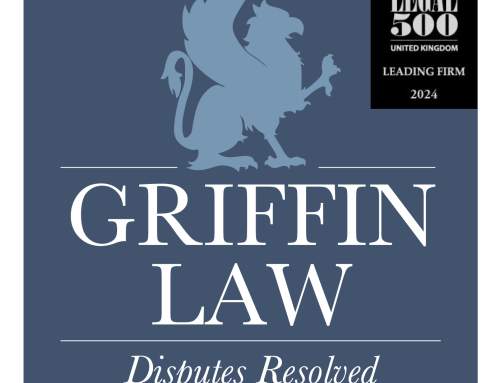The Contract is what the written contact says it is…..isn’t it?
It may surprise you to know that a Contract is not always what the written contract says it is.
Regardless of how meticulous you are in ensuring that there is a written, watertight agreement in place with new suppliers, contractors, introducers etc, you cannot be sure that as the relationship progresses, the written contract is in line with the actual Contract. Or, that years down the line the same, watertight contract signed at the start of the relationship will protect you or your business/organisation.
Contrary to popular belief, what a contract says, is not always what the contract is.
A contract, by definition, is an agreement between two or more parties setting out their respective obligations. A contract can be oral with nothing in writing, but most competent organisations and individuals understand the need to evidence such an agreement in writing.
The Courts have shown an increasing willingness to accept that contracts can be varied by the conduct of the parties. For instance, should a dispute arise between the two parties, the written contract will not be accepted in isolation, regardless of whether it has been signed or contains an anti-oral variation clause.
CASE STUDY 1 – Globe Motors Inc v TRW Lucas Variety Electric Steering Ltd [2016] EWCA Civ 396
The Court of Appeal indicated in obiter comments, that including an anti-oral variation clause in a contract will not prevent subsequent variation of a contract orally or by conduct. This clarified previous inconsistent Court of Appeal Authorities.
In an exclusive supply agreement, whereby TRW agreed to purchase Globe Motors components for steering systems, the contract contained the following clause:
“6.3 Entire Agreement; Amendments, which include the Appendices hereto, is the only agreement between the parties relating to the subject matter hereof. It can only be amended by a written document which (i) specifically refers to the provision of this Agreement to be amended and (ii) is signed by both Parties.”
An issue arose regarding Globe Motors’ Portuguese subsidiary, in particular whether it was a party to a contract by way of a variation. Globe Motors’ position was that the subsidiary had been made a party to the contract by virtue of an oral variation, whereas TRW contended that a variation could only be in writing for it to be valid.
The Court held:
Parties can override an anti-oral variation clause if they so desired.
“The parties have freedom to agree whatever terms they chose to undertake, and can do so in a document, by word of mouth, or by conduct. The consequence in this context is that in principle the fact that the parties’ contract contains a clause such as [the clause in question] does not prevent them from later making a new contract varying the contract by an oral agreement or by conduct.”
This decision was upheld by the Court of appeal in;
CASE STUDY 2: MWB Business Exchanges Centres v Rock Advertising [2016] EWCA Civ 553
The written contract contained a clause that provided:
“Clause 7.6 – This licence sets out all of the terms as agreed – No other representations or terms shall apply of form part of this licence. All variations to this licence must be agreed, set out in writing and signed on behalf of both parties before they take effect.”
The Court held:
“Those who make a contract, may unmake it. The clause which forbids a change, may be changed like any other. The prohibition or an oral waiver, may itself be waived…”
A lot can change in a few years and the contract may not be as watertight as it once was.
As a business, organisation or individual, you run the risk of losing the certainty as to the terms upon which you contracted. The risk increases with the passage of time.
What should you do?
The answer isn’t nothing! You could be walking blindly into an expensive legal dispute in the future.
Get all those dusty old contracts out of the filling cabinet and undertake a contract review.
Check what you do against what the contract says. If they are different you may need to take steps to reinstate the original contract or replace it.
Griffin Law is a dispute resolution firm comprising innovative, proactive, tenacious and commercially-minded lawyers. We pride ourselves on our close client relationships, which are uniquely enhanced by our transparent fee guarantee and a commitment to share the risks of litigation. If you have any specific questions regarding a dispute, please email justice@griffin.law or call 01732 52 59 23.





